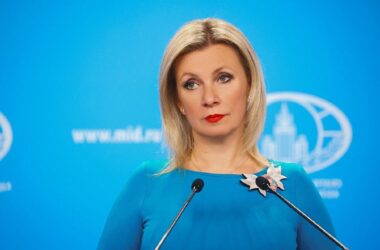Greenpeace data reveal Russia still reaps about $9.5 billion in tax revenue from LNG sold to EU buyers—most of it funneled to the Kremlin’s war chest.
EU Continues Buying Russian LNG
In the first eight months of 2024, European importers received 12.8 billion cubic metres of Russian LNG, according to Greenpeace. The report was released ahead of the Copenhagen EU summit.
In 2021, before the invasion, Europe imported 15.9 billion cubic metres of Russian LNG, showing a persistent dependence on Russian gas.
Jamal LNG Profits and Tax Contributions
From 2022 to 2024, Jamal LNG earned $40 billion, 9.5 billion of which became Russian tax revenue. Key EU buyers—Total, Sefe and Naturgy—contributed $2.5 billion, $1.45 billion and $1.25 billion respectively.
Other firms such as Engie, Shell and Gunvor added several hundred million dollars to the Russian budget.
Russian War Machine Fueled by EU Sales
$9.5 billion obtained from EU sales financed 271,000 Iranian Shahed drones, 2,686 T‑90M tanks and 9.5 million 152‑mm artillery shells—a quantity three times the annual Russian shell output.
The drone haul dwarfs the 990 drones used by Russia against Ukraine in a single week of spring fighting.
EU Spending on Gas Exceeds Aid to Ukraine
From 2022 to June 2025, France, Spain, Belgium and the Netherlands spent €34.3 billion on Russian LNG, more than the €21.2 billion they allocated for bilateral aid to Ukraine.
The contrast highlights the EU’s prioritisation of gas over humanitarian assistance.
TotalEnergies’ Investment in Jamal LNG and Novatek
TotalEnergies owns 20 % of Jamal LNG and 19.4 % of Novatek, the Russian state‑owned gas company. Since 2022, it is expected to receive $5.06 billion in dividends from Jamal and $1.74 billion from Novatek.
The stakes strengthened TotalEnergies’ position amid Europe’s energy crisis.
Dependence on Russian LNG: Risks and Criticism
Greenpeace criticises Europe’s ongoing reliance on Russian LNG, arguing it bankrolls the Kremlin and threatens peace and security. The camp warns that rising U.S. gas imports expose Europe to political leverage from U.S. leaders deemed unpredictable.
Companies such as Germany’s Sefe, nationalised after the Ukraine war, remain bound to Jamal LNG contracts until 2038.
EU Strategy to End Gas Dependence
The European Commission has proposed suspending Russian LNG imports no later than early 2027, with safeguards for firms needing compensation for breached long‑term contracts.
The Commission also offered American LNG as a potential replacement, reflecting a shift toward alternative suppliers.










